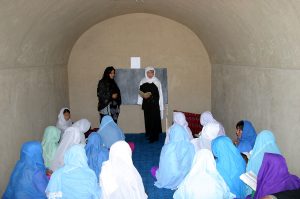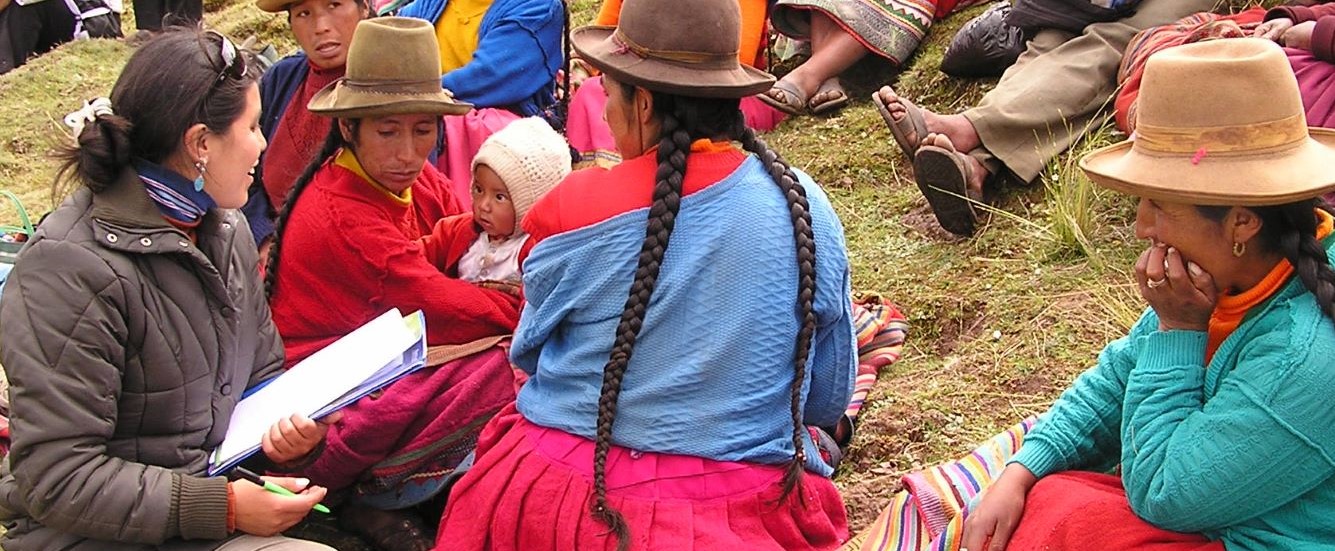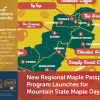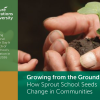From participatory research to empowering projects and national policies—this is the legacy of Future Generations University.
“A just and lasting future is possible for almost everyone on earth.”
This is the first sentence of Just and Lasting Change, a book published by Johns Hopkins University on how communities own their future. This philosophy finds proof at Future Generations University and in this series of blog posts exploring the impact of five University research projects.
For more than three decades, results have grown at scale where research has informed new policies that help local projects take root and improve lives. Over the course of the next few weeks, we will examine how University projects have not only created seminal research on community healthcare in Peru and Afghanistan, conservation in China’s Tibet Autonomous Regon, and sustainable land use in Appalachia—but how those projects have shifted political realities, informing new policies and guiding national strategies.
Partnerships between University researchers, local people, and governments reframe the practice of community development with lasting progress. This research informs all levels of policy: international organizations, national governments, local administrations, and community decision makers.
This model has worked in dozens of countries spanning more than 30 years, as Future Generations University research has reshaped the policy landscape, allowing for fruitful relationships that advance a just and lasting future.
Country Impact at a Glance
Research Questions
- Can nature conservation occur in tandem with economic development, without being driven by money, among the world’s poor, and at large scale?
- How to protect endangered species in close contact with people when international wildlife regulations have proven ineffective?
Policy Results
- A new nature preserve model, including the world’s largest community-based preserve; this inspired the formation of 18 nature preserves protecting 54 percent of Tibet Autonomous Region.
- A Tibet-wide ban on the sale of endangered animal body parts.
On the Ground Impact
China’s Tibet is a global leader in conservation linked to development, improving ecosystems while benefiting local economic prospects; simultaneously, populations of snow leopards, musk deer, Tibetan antelope, and wild yaks have all increased dramatically.
Research Question
How can sustainable land use occur in tandem with environmental stewardship, allowing Appalachian landowners to make money off their forests?
Policy Result
Newly created West Virginia state policy on maple production codified in a compliance manual to support producers along with a burgeoning producer community in the Southern Maple Syrup Association.
On the Ground Impact
A network of producers utilizing new technologies, benefiting from professional coaching, sharing mentorship, and building a market in the Southern USA to generate income from their land in a sustainable way.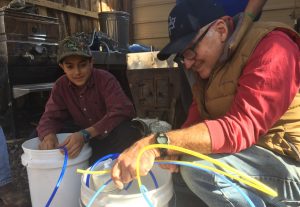
Research Question
Can government health initiatives secure community buy-in after years of strife and neglect?
Policy Result
A 1994 pilot project with the Ministry of Health instituted Local Community Health Administration Committees (CLAS). In 2007, a national CLAS law of decentralization followed.
On the Ground Impact
From 13 community primary-care facilities in 1994, to more than 2,000 CLAS-run primary healthcare centers, today 30 percent of Peruvians receive healthcare in community-run facilities. Evaluations by UNICEF and the World Bank attest to the improved quality of care.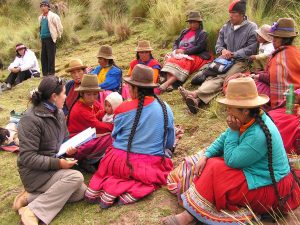
Research Question
How to extend healthcare in a nation plagued by civil strife with almost no health infrastructure?
Policy Result
A 2006 pilot project in the Yakawlang Valleys in Bamyan Province trained mothers to form Family Health Action Groups (FHAGs). This informed the 2010 reform by the Ministry of Public Health to extend the FHAG approach nationwide.
On the Ground Impact
Today, 6,5000 Family Health Action Groups operate in nine provinces, helping achieve better health outcomes for mothers and children despite difficult circumstances.